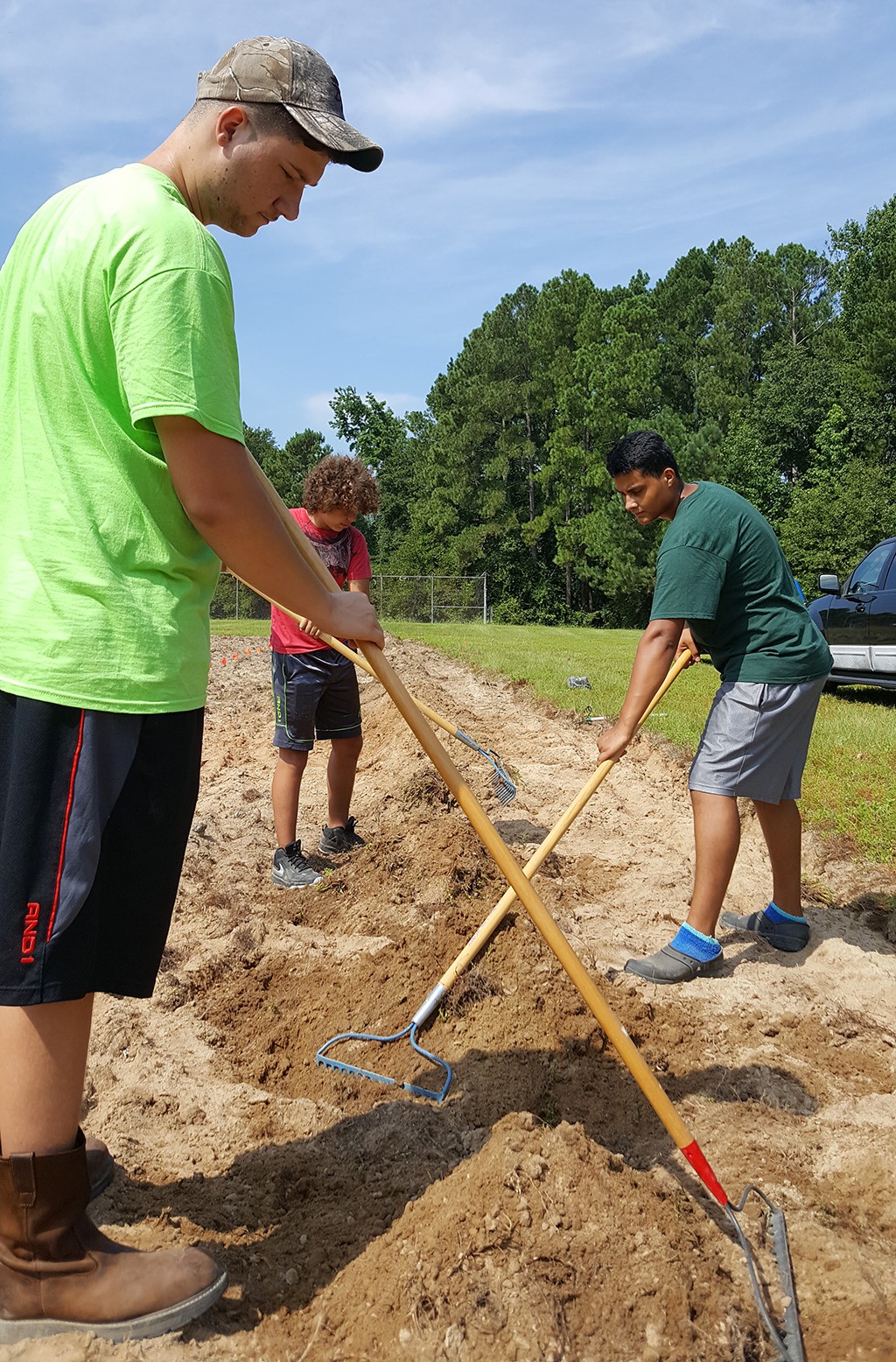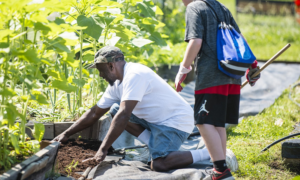A half-acre of pumpkins fatten under the sun in Wagram, North Carolina, in a field next to an empty prison. Nearby are abandoned guard towers and echoing cell blocks.
On Saturday, the pumpkins will be ripe and ready for a Halloween-themed grand opening celebration — the day the closed prison complex officially becomes home to an innovative program that works with young people to “flip” prisons.
The nonprofit Growing Change is working to transform the closed Scotland County prison site into a community farm and education center, even as the young men in the organization flip the script of their future.
Six years ago program founder and therapist Noran Sanford took 12 boys who appeared to be headed to prison and offered them a program on the grounds of the abandoned site. All had been arrested on various offenses and kicked out of home and school.
“These are young men on whom the adult prison system is built,” Sanford said. Most had Native American or African-American ancestry.
Wagram, in Scotland County, is in one of the poorest areas of North Carolina. And in next-door Robeson County, home of the Lumbee Tribe, 31 percent of residents live in poverty, according to the North Carolina Justice Center’s Budget and Tax Center.
“We are in one of the most challenged rural regions of the Southeast,” Sanford said.
The dozen youth took part in cognitive behavioral therapy, grew food on the community farm for donation to local families and worked on entrepreneurial projects. They had fun together, going out to eat and swimming in a nearby creek. They attended a youth leadership summit devoted to food justice.
“We combine mental health therapy with service learning opportunities … and personal and professional development,” Sanford said.
Two years later, the group appeared before the North Carolina Department of Public Safety’s Executive Leadership Team. Two of the young men outlined a plan to renovate and reuse the prison. Growing Change envisions turning cellblocks into aquaponic tanks and guard towers into climbing walls.
It also plans to use other structures to house returned veterans pursuing degrees at nearby colleges. A drainfield will become a large composting worm bed, building on one youth’s business project of using earthworms to create enriched soil for sale to gardeners.
Over six years, Sanford’s pilot program has shifted the youth into a leadership team that can bring new ideas to local authorities and community groups.
“We are giving that power system the tools to see young people differently … and to treat young people differently,” Sanford said.
For example, Sanford and his group worked with faculty and students at the University of North Carolina at Greensboro to create an exhibit on the history of prison labor in North Carolina. As they became well-versed in the subject, the youth were able to bring this new information to adults around them. In April, they traveled to Cambridge, Massachusetts, to present their work at the MIT School of Architecture + Planning.
“There’s a real exchange,” Sanford said. Giving young people the opportunity to become subject matter experts is part of his clinical model, he said.
“If we’re serious about investing in change … then why we have created a system where young people most in need fall out of the systems we want them to be in?” Sanford asked.
Most of the young men Sanford began working with six years ago have moved on. Three remain, however, to work with a handful of new youth coming into the program.
Derek Cummings was 12 when he joined Sanford’s program. “I got caught up in the court system,” he said; he didn’t want to give details.
If not for the program “I’d be locked up or dead or strung out on drugs,” he said.
Cummings said he experienced a turning point in 2015 when he was featured in an article about Growing Change in the Fayetteville Observer. He’s 18 now and will join the Job Corps in the fall.
With its grand opening this week, Growing Change is a step closer to turning the former prison labor camp into a center where young people create change in their own lives and in the lives of others.
































